AFC Wimbledon: The most righteous team in England

Niall Couper is UK spokesman for Amnesty International. If you follow the news, you'll understand that means he's a busy man. You'll also understand why I, having never met him, was nervous about emailing to ask if he'd like a chat about football.
He replied within three minutes: "Friday?"
I shouldn't have been surprised. Couper is a Wimbledon fan, and Wimbledon fans are always happy to talk football. In fact, it is their enthusiasm for the game that has made Wimbledon possibly the finest football club in the world.
I first heard about their club in 1988, when it met Liverpool -- the aristocrats of English football, the best team in the country, if not the world -- in the FA Cup final. My great grandmother lived in Wimbledon, a patch of south London better known for tennis, but the reason my mates and me, and millions of other Brits, cheered on the boys in blue had nothing to do with geography, and all to do with something far more important.
Wimbledon scored first, a header by Lawrie Sanchez, chiefly noticeable now for the shortness of his shorts. The iconic moment was later in the game, on the hour mark, when Liverpool's John Aldridge -- a mustachioed Irish international in his club's famous red strip -- lined up a penalty against Dave Beasant, Wimbledon's goalkeeper, resplendent in yellow shirt and Brian May hair.
Aldridge shot to Beasant's left. Beasant dived, full stretch, turned the ball round the post. Aldridge sank to his knees. Beasant snarled. May 14, 1988: the day when Wimbledon won the FA Cup 1-0. It was perhaps the biggest shock that the world's oldest football competition has ever seen.
"I was there. I was behind the goal, I saw him dive," Couper said.
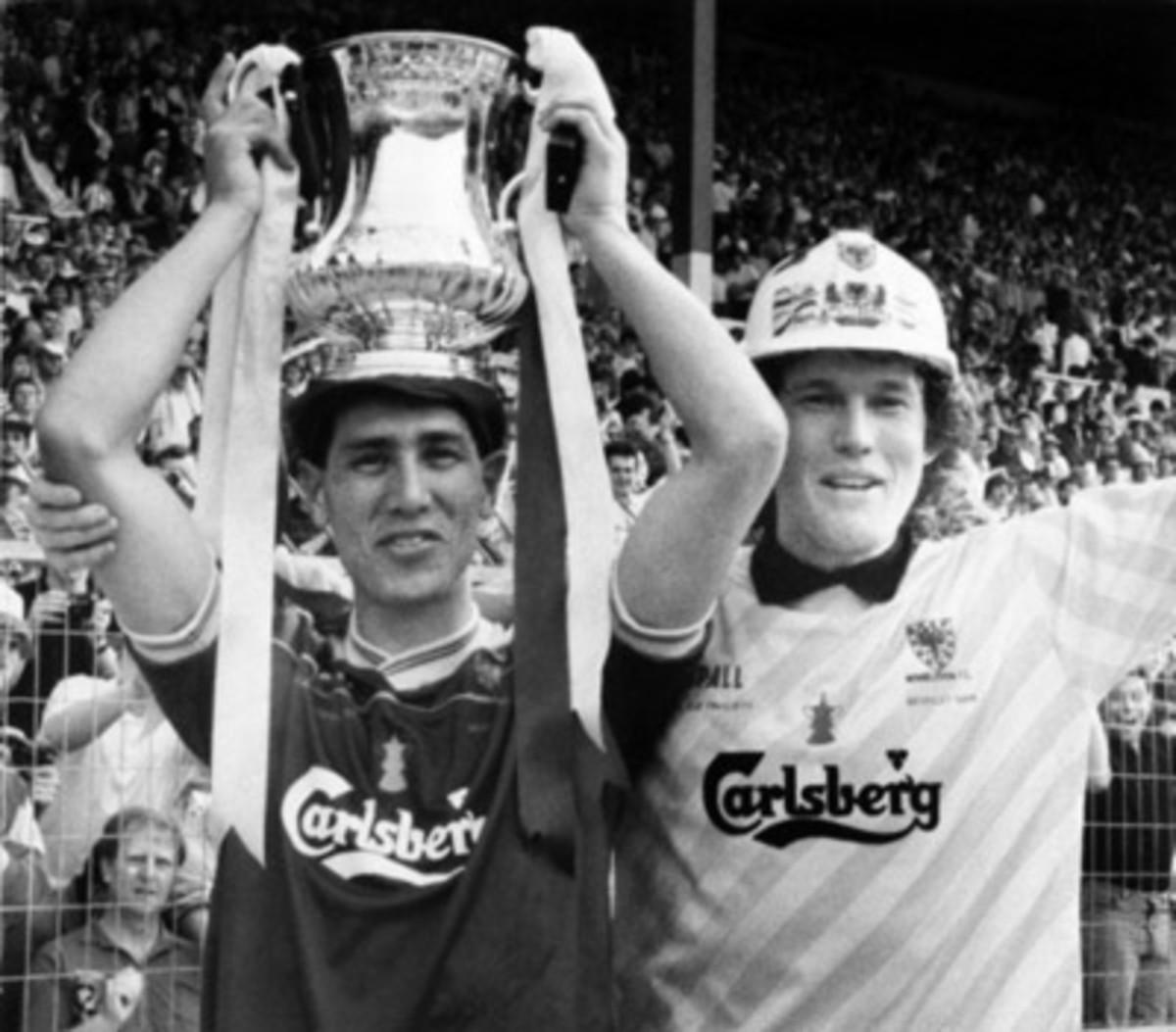
Couper has silver-tinged hair and the careful enunciation that is required if you're the voice of Amnesty International. He was just 14 years old at the time, and could still describe every play of that match with the kind of detail he would normally reserve for a live human rights emergency.
"It is weird everyone remembers that one, because most of Beasant's saves in the first half hung in the air far more. But people forget that we had a lot of chances too."
Liverpool fans were no doubt heartbroken, but neutrals like me were delighted. This wasn't because Wimbledon played attractively. The players were unsubtle to the point of brutality, and their attacks were unimaginative: a hoof up the pitch and a scramble in the goalmouth. We watched because of what they represented: hope.
Even in Britain, even then, most people only followed the top clubs -- Manchester United, Chelsea, Liverpool, Arsenal, the usual boring suspects -- but these global mega-brands are just the glittering summit of a tall and broad pyramid. The Premier League is connected to the one beneath it, and that to the one below that. Finish at the bottom of the league, and you go down and down and down, all the way to the bottom, where games are played on Sundays by 22 blokes in a park.
Wimbledon only climbed into the full-time Football League in 1977. Yet, here it was, barely a decade later, winning the greatest prize of all. If Wimbledon could do it, could come bursting out of unfashionable south London and beat the best, then so could anyone. It should have been a movie.
"To talk about the Wimbledon story, it started a long time before the FA Cup win, the real romance of it started a long time before that and this is the point, this is what a lot of people don't realize. And I think that to write a true story about us, you need to know that very early history," explained Ivor Heller, a local businessman who started following the Dons, aged 11, in the 1970s.
In the 1970s, Wimbledon was easily good enough to be in the top four divisions, the Football League, where fully professional clubs played against each other. But first it had to win entry. To enter the League in those days, clubs had to apply for approval from the other members, which meant another club had to go down.
Not surprisingly, few League clubs were prepared meekly to commit suicide in that fashion, even if their presence in the elite was unjustified, and it took Wimbledon three years of trying before it managed to shoulder one of them aside. This welded the fans into a coherent whole, by giving them one of humanity's most powerful motivators -- a grievance.
"People ask me what my best day as a Wimbledon fan was, that it must have been winning the FA Cup," said Heller, who is short, bearded and charismatic, like a woolier Danny DeVito. "But that day when we got elected to the league, that was a party. I was 13 years old, doing the very best I could to get my hands on any alcohol that I could. And we had a massive party, it was unbelievable, Wimbledon were in the league."
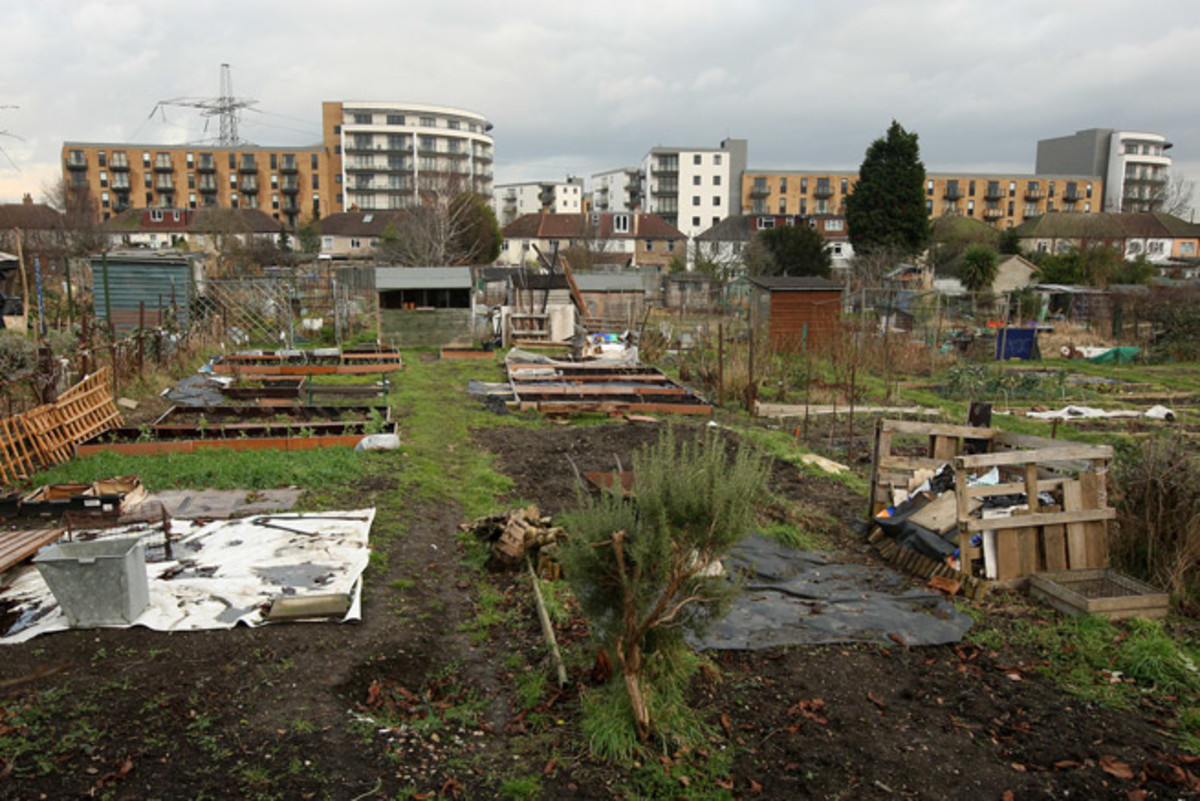
"That doesn't transfer, you can't have someone in Milton Keynes being proud of southwest London. It doesn't make sense, it doesn't work, it's just obvious."
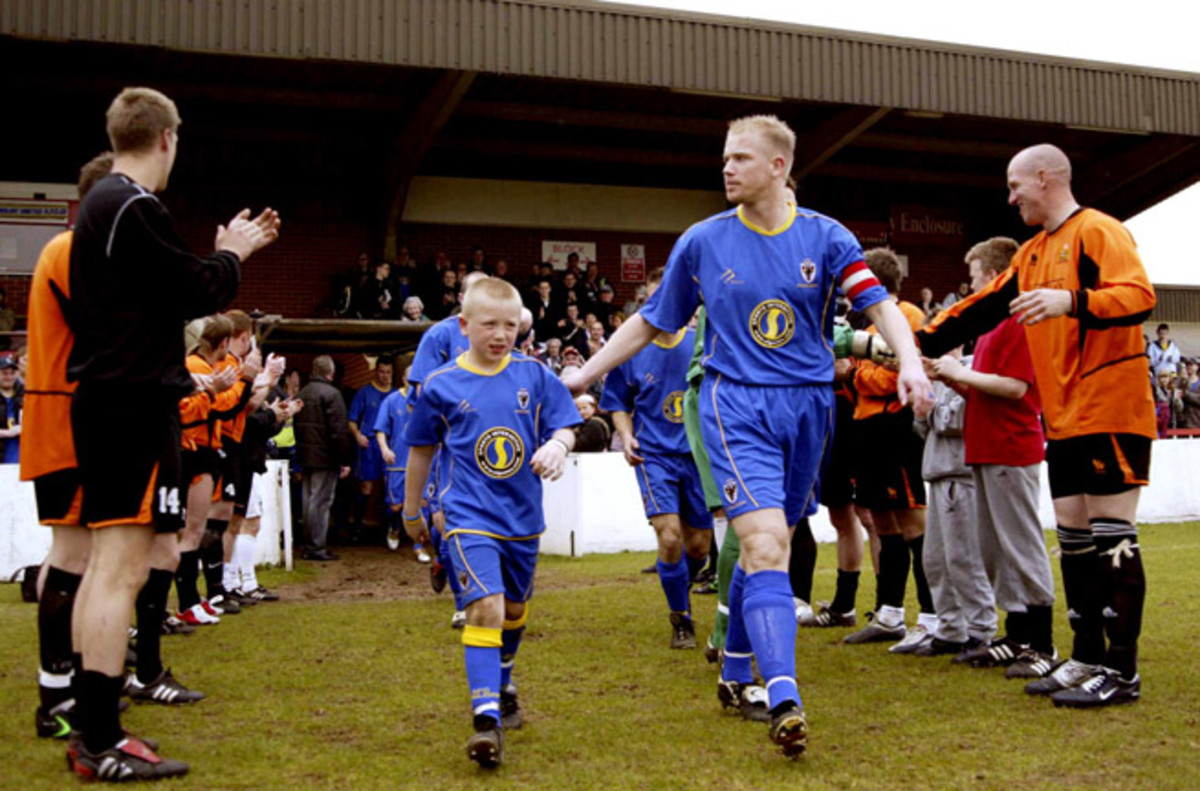
The club that betrayed them was called Wimbledon FC. Their club was to be AFC Wimbledon, owned by the fans. And it wanted some players.
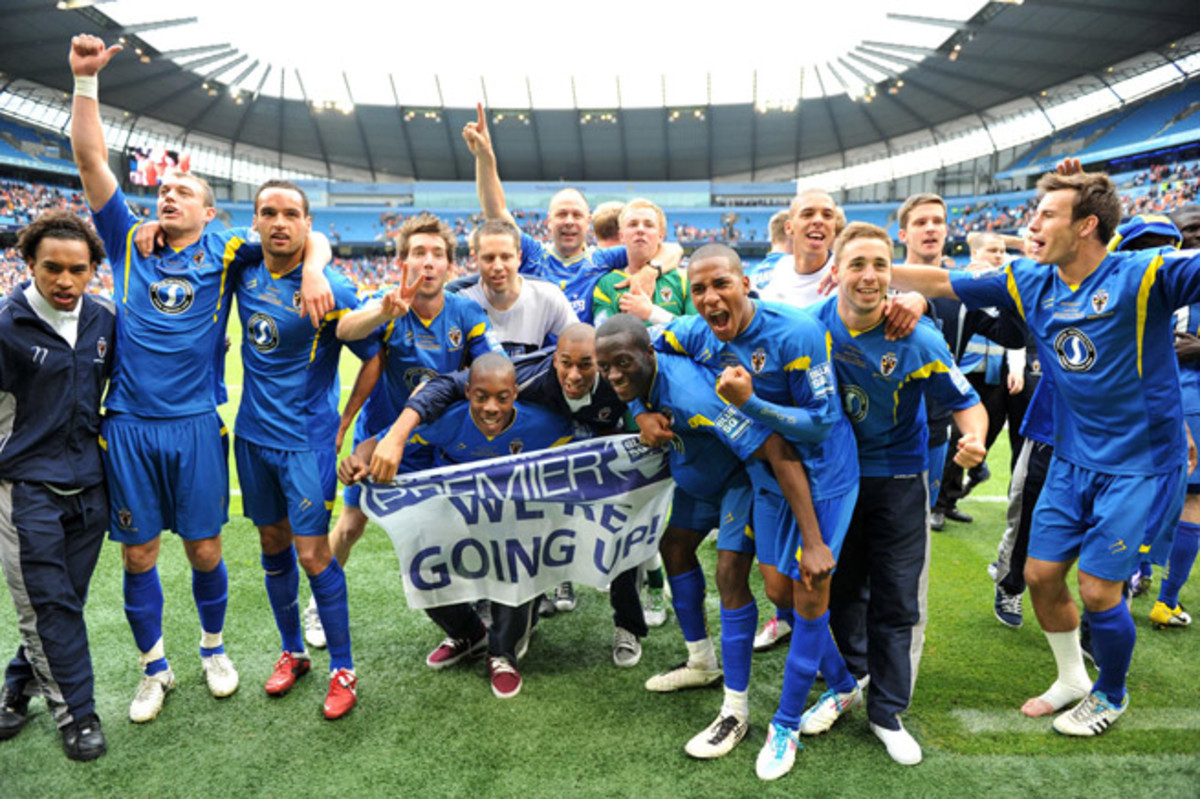
"The fairy tale is complete, Danny Kedwell is the hero, and the fans' club that started less than nine years ago are into the Football League. Wimbledon have a Football League club again," he shouted.
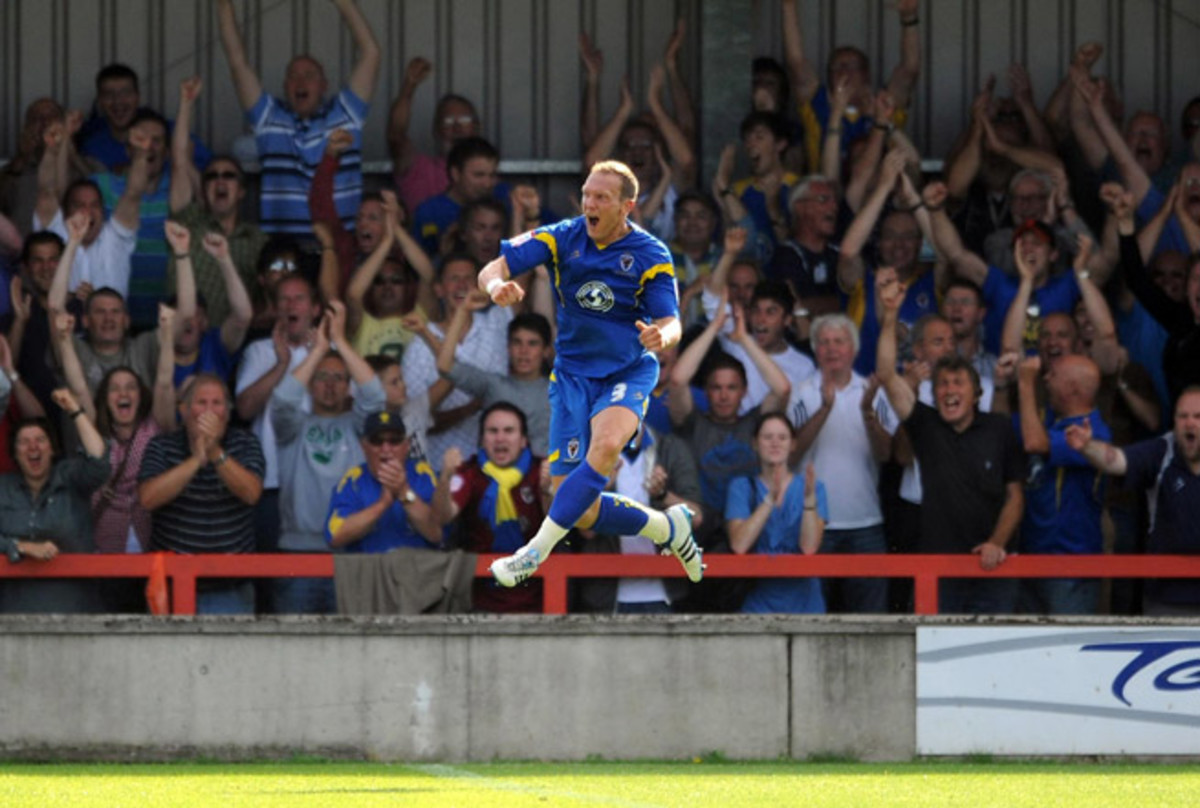
"Getting a consensus in decisions is not easy, and getting change is not easy. It is far easier if you own your own business. People from very different backgrounds, with different knowledge, different experiences, that's been challenging," said McNay.
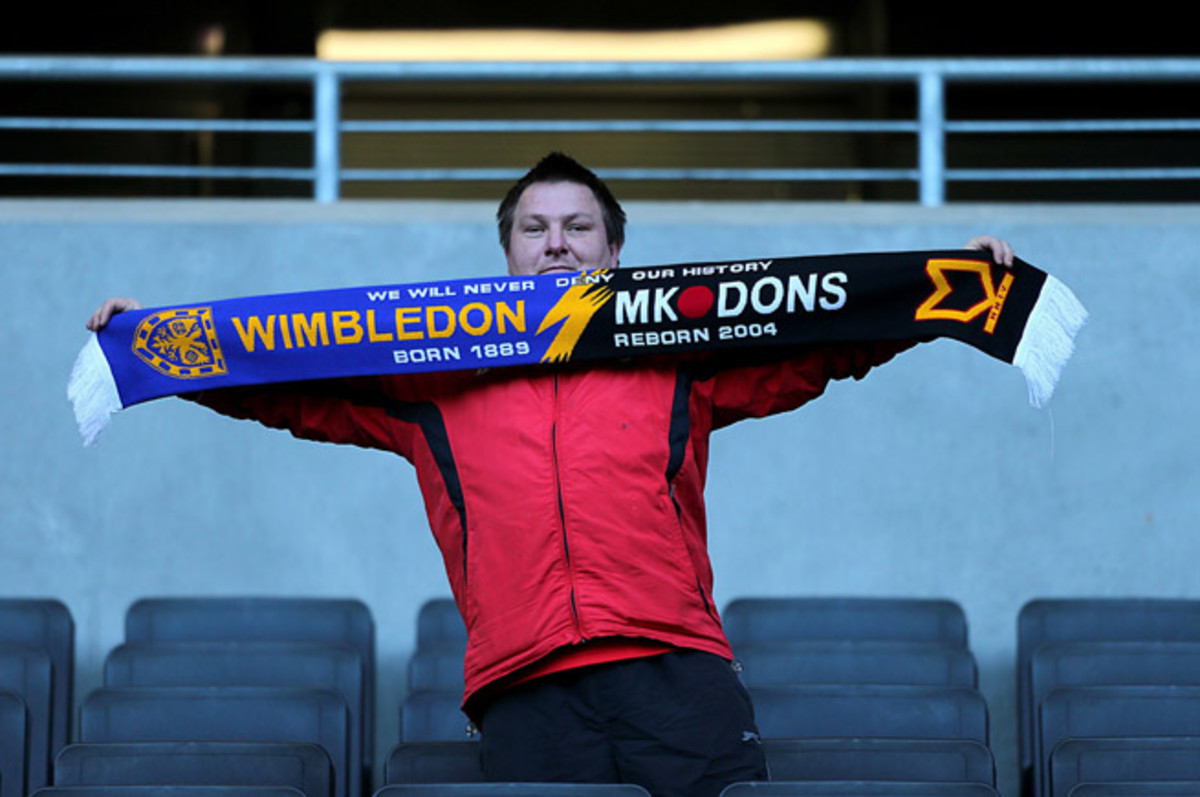
Oliver Bullough is Caucasus Editor for the Institute of War and Peace Reporting and author of Let Our Fame Be Great, which won the Overseas Press Club's Cornelius Ryan Award and was shortlisted for the Orwell Prize. His most recent book is The Last Man in Russia: The Struggle to Save a Dying Nation.
